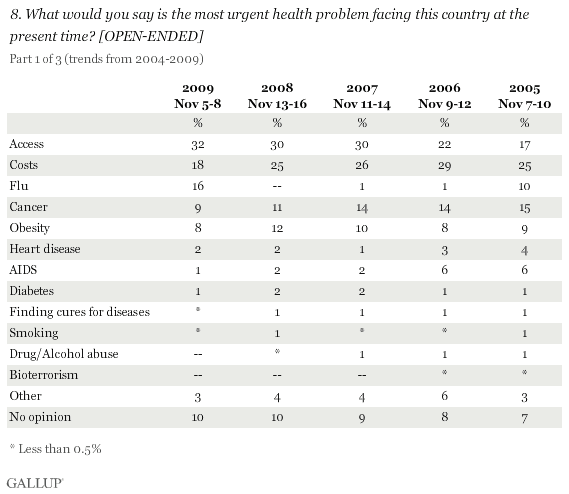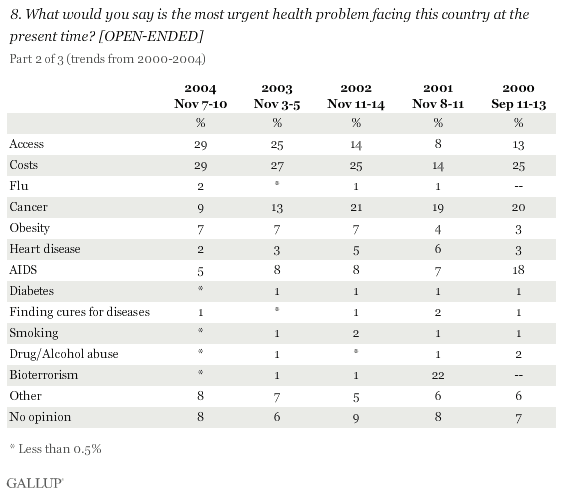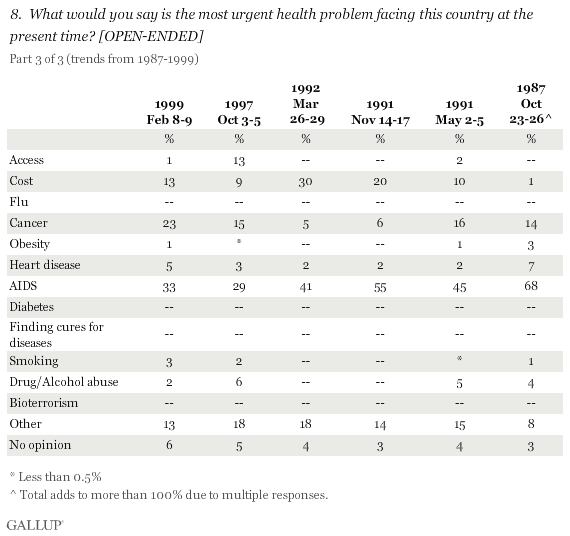PRINCETON, NJ -- For the third straight year, access to healthcare leads the list of issues Americans name as the "most urgent health problem" facing the U.S., now cited by 32%. At 18%, the cost of healthcare is also widely mentioned, but to a lesser degree than it was a year ago. As a result, after many years when healthcare costs ranked as the bigger top-of-mind health problem, access now leads costs by 14 points, its widest margin.
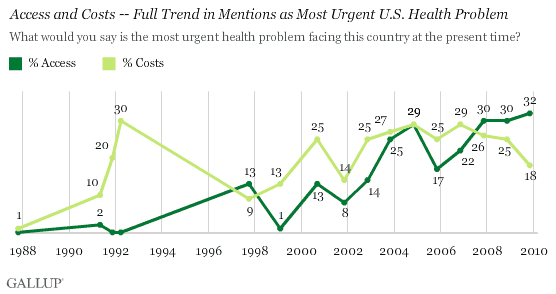
Gallup first asked Americans to name the "most urgent health problem facing this country at the present time" in 1987, and has repeated the question annually since 1999. The latest findings come from Gallup's 2009 installment of its annual Health and Healthcare poll, conducted Nov. 5-8.
Amid the worldwide H1N1 flu pandemic, Americans' mentions of flu as the nation's most urgent health problem have zoomed to 16%, up from minimal percentages citing it each of the last several years. The flu thus roughly ties healthcare costs for second on the list this year, followed by cancer and obesity. No other issue is named by more than 2% of Americans.
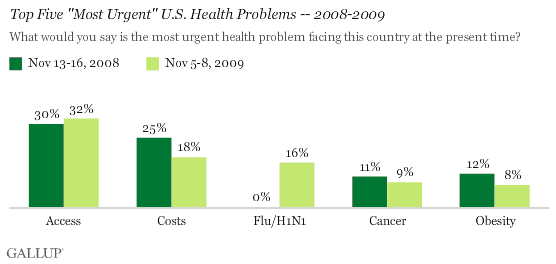
Several previous health scares -- such as the bird flu in 2005 and bioterrorism in 2001 -- resulted in those specific issues' appearing prominently one year on the list of "most urgent health problems," only to nearly disappear the next. On the other hand, AIDS received widespread mentions for a sustained period. A striking 68% of Americans perceived AIDS as the most urgent problem in 1987. While mentions of the disease tapered off in subsequent years, they remained high through 2000, dropping below 10% in 2001. Today's 1% is the lowest on record.
This year's increased focus on flu may be displacing public concern about cancer and obesity -- both of which show slight declines since 2009. However, at 9% and 8%, respectively, today's mentions of cancer and obesity still outnumber mentions of other leading public health problems, including heart disease (2%), diabetes (1%), and smoking (named by less than 0.5% of Americans).
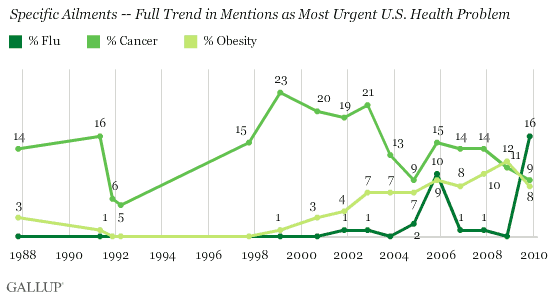
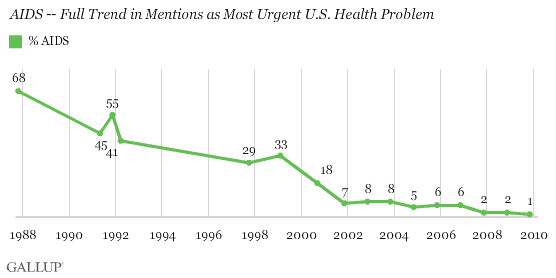
Bottom Line
Media reporting on healthcare issues in 2009 has focused heavily on two very different types of concerns: the policy issues around healthcare reform, and the medical issues around the H1N1 or swine flu. Both sets of concerns are evident in Americans' top-of-mind responses to the "most urgent health problem" facing the country today. Healthcare access and costs are perennial public concerns that have dominated the Gallup "most urgent health problem" list since concern about AIDS dropped off in the early 1990s. More recently, mentions of healthcare costs have ebbed -- a finding consistent with separate Gallup research showing increased public satisfaction with the cost of healthcare -- while concern about access has remained high.
Survey Methods
Results are based on telephone interviews with 1,008 national adults, aged 18 and older, conducted Nov. 5-8, 2009. For results based on the total sample of national adults, one can say with 95% confidence that the maximum margin of sampling error is ±4 percentage points.
Interviews are conducted with respondents on land-line telephones (for respondents with a land-line telephone) and cellular phones (for respondents who are cell-phone only).
In addition to sampling error, question wording and practical difficulties in conducting surveys can introduce error or bias into the findings of public opinion polls.
